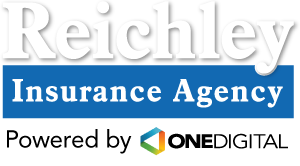What Is Your Insurance Agent Doing For You?
Engaging in any business requires the support of professionals who can guide you through the complexities and challenges of your industry. One such professional is an agent. They play a critical role in ensuring your success. However, not all agents are created equal. It’s important to know what your agent should be doing for you to ensure that they are providing the best service possible.
Educating You
Knowledge is power, especially in business. Your agent should be a source of knowledge and education for you. They should be able to explain the different aspects of your business, the market, and the industry as a whole. It’s their responsibility to ensure that you are well informed and understand the details of your business. This not only helps you make informed decisions but also increases your confidence in your business operations.
Connecting with You
Communication is key in any relationship, and the one between you and your agent is no different. Your agent should be proactive in reaching out to you, keeping you updated, and being responsive to your inquiries. They should be available to answer any questions, concerns, or ideas you may have. The more connected you are with your agent, the better they can serve your needs.
Reviewing Your Risk
Every business comes with its own set of risks, and it’s your agent’s job to help you understand and manage them. They should be able to review your business operations and identify potential risks that could affect your business. They should also offer solutions or strategies to mitigate these risks. By doing so, they can help protect your business and ensure its longevity.
Looking for the Right Combination of Coverage and Price
One of the critical roles of an agent is to help you find the right insurance coverage for your business at the best price. They should be able to navigate the complex insurance market and find a policy that fits your needs and budget. It’s their duty to ensure that your business is adequately protected without overpaying for coverage.
Responding to Questions
Your agent should always be ready and willing to answer your questions. No question is too small or too big for them to handle. Whether you’re asking about policy details, claims, or changes in the market, your agent should provide clear, accurate, and timely answers. This not only helps you understand your business better but also builds trust between you and your agent.
Providing Great Customer Service
Last but not least, your agent should provide exceptional customer service. They should be friendly, approachable, and professional. They should also be proactive in addressing your needs and resolving any issues that may arise. Great customer service not only makes your business interactions more pleasant but also fosters a strong, long-lasting relationship between you and your agent.
An agent plays a crucial role in the success of your business. They should be educating you, connecting with you, reviewing your risk, looking for the right combination of coverage and price, responding to questions, and providing excellent customer service. They should be a partner in your success and not just a service provider. So, make sure to choose your agent carefully and hold them to these standards.













